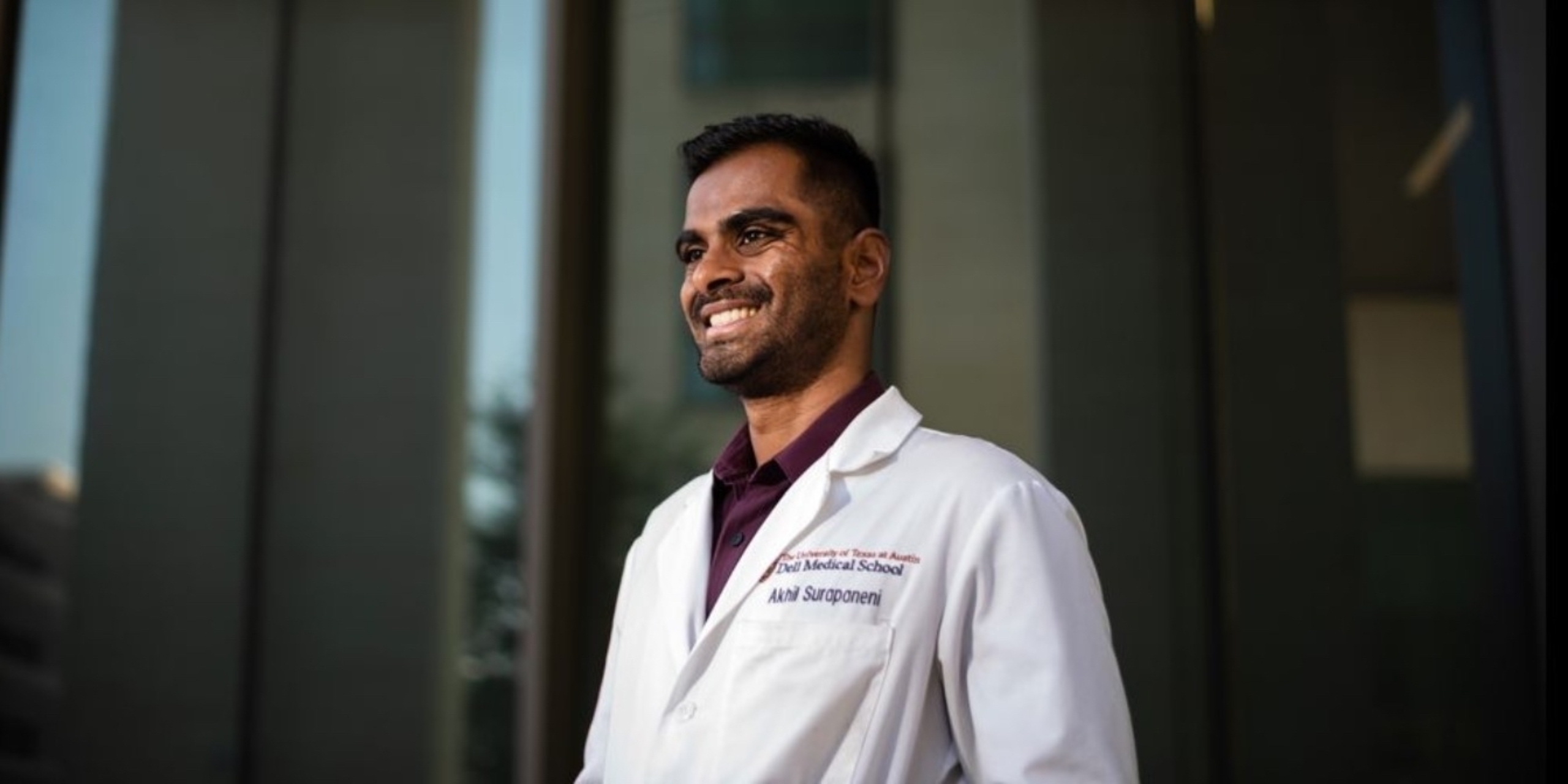For patients who undergo surgery to remove brain tumors, long-term impacts can include a loss of abilities that help them live meaningful lives.
Akhil Surapaneni, a fourth-year student at Dell Medical School, has helped care for patients with brain tumors through clinical rotations, while also investigating novel therapies to restore their functional abilities. When he graduates in 2025, he will have earned both an M.D. from Dell Med and a Ph.D. in biomedical engineering.

Akhil Surapaneni.
‘Disability & Devastation’
Glioblastoma, a brain cancer that is among the deadliest known cancers, has a median survival rate of 15 months that has only improved by five months in the last 50 years. In Surapaneni’s words, glioblastoma hijacks neural networks “as if disability and devastation are baked into its molecular essence.”
“Patients with gliomas are disproportionately affected by neurological deficits and psychiatric diseases,” Surapaneni says. “Tumors in important functional areas are also commonly unremovable through surgery, ordinarily one of the most potent weapons in our arsenal of treatments.”
Currently, neuro-oncology measures patient outcomes by examining the probability of survival at certain time intervals. Surapaneni says that this model doesn’t include factors that are central to patients’ quality of life, like motor function, language ability, cognitive ability and mood.
Maximizing Treatment, Minimizing Deficit
When on a clinical rotation helping to care for a young patient with a tumor affecting language abilities, Surapaneni realized how he wanted to move forward in his career:
“My goal for my Ph.D. is to combine brain-computer interfaces and neuromodulation to transfer functional ability stored in brain regions affected by tumors to non-affected regions prior to surgery,” Surapaneni says. “This will allow the surgeon to maximize tumor removal while minimizing the patient’s neurological deficit.”
Surapaneni is a part of a larger team of doctors, engineers and scientists at The University of Texas at Austin conducting a study investigating how to move critical brain functions away from surgical sites. This approach has the potential to improve overall survival for patients afflicted by brain tumors. It also promises patients a higher quality of life by retaining their ability to pursue meaningful activities that sustain their well-being, such as their hobbies, work, travel and interactions with family and friends.
“I am fortunate to be advised by faculty who are leading experts in brain-computer interfaces, neurosurgery, glioma biology and more,” Surapaneni says. “We have established a collaboration with neurosurgeons, neurologists and scientists that spans across the globe, and more importantly, everyone involved in this project is very passionate about it.”
Redefining What It Means to Be ‘Okay’
Surapaneni recalls speaking to the young patient before his surgery. The patient asked, “After the procedure, am I going to be okay? Like really okay?” The type of brain tumor he had — one that pressed into the language area of his brain — indicated decades of survival. However, the question probed beyond survivability.
“Would he lose his speech due to tumor growth or treatment? Would he still be able to live a meaningful life with this disease? That’s what he really wanted to know,” Surapaneni says. “Although I didn’t have an answer for those questions at the time, I hope to develop clinical and scientific knowledge to reply with, ‘Yes, you’ll still be able to do the things you love.’”
This news feature is part of Dell Med’s Voices, a series of profiles that highlight the people of Dell Med as they work to improve health with a unique focus on our community.